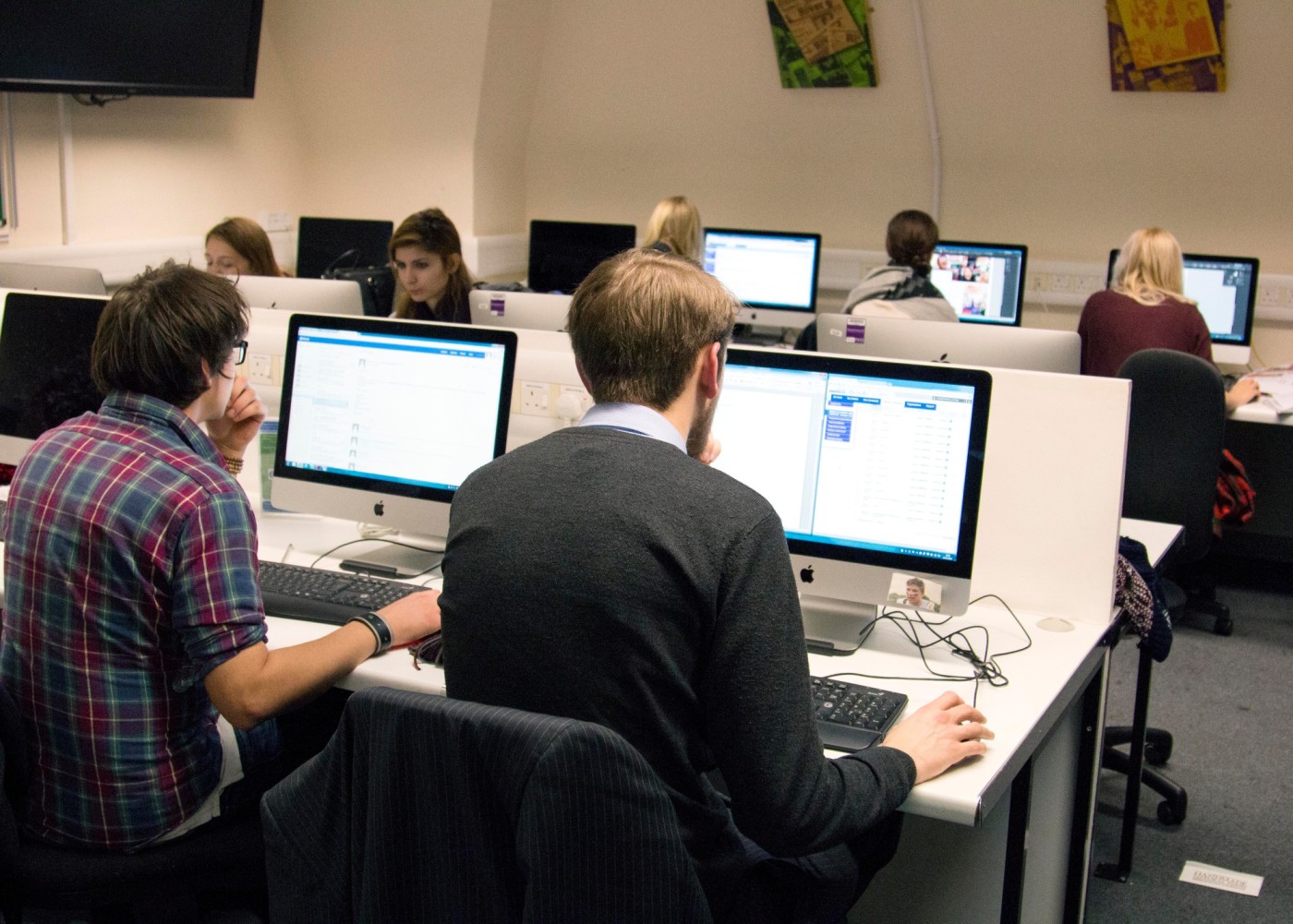‘Publishing is an industry undergoing dramatic technological and commercial changes’ [1]
How often have you heard the phrase: ‘publishing is changing’? Even the title of this blog series, Publishing Revolutions, alludes to the fact that this industry is adapting to the technological revolution of the 21st Century.
As Alistair Carnegie Hodge, leader of Derby’s Publishing MA course so aptly puts it:
‘Publishing companies are keen to dispel the myth that all you need for success in the industry is a love of literature and reading. New entrants are now expected to bring industry-specific professional skills along with qualities such as innovation, versatility, enterprise and problem-solving.‘ [2]
This blog post aims to examine exactly what ‘industry-specific’ skills are needed to succeed in the publishing industry today, how Google can aid individuals who want to enter the publishing world, and more broadly, how our generation – the Google Generation – has affected the industry.
What you need and how to achieve it:
‘The ‘book’ as a printed container of content represents a too restrictive view’ [3]
Due to the digital shift, individuals wishing to enter the industry unsurprisingly need to be technologically aware and possess good computing skills. When working at a publishing company today it is unlikely that you will be working solely with the traditional printed book.
The advancement of the internet and resulting digital platforms means that everything from book creation to distribution has revolutionised. Editor, Peter Onos, reflects on how the distribution was handled before the arrival of computers:
‘In 1984 orders were still delivered by phone, fax and mail’ [4]
However, now, more and more readers are choosing to order books online – it is easier, faster and often cheaper than the methods used before. This means that publishers today must be familiar with popular bookselling sites such as Amazon, know how to upload page previews to the site, and use the internet to spread the word on where the book can be bought, linking onto the next skill: social media marketing…
It is all well and good to place your book online, but readers need to know about it and become interested first. This means aspiring publishers must be familiar with social media and how to use it to create a successful marketing strategy. The blog Marketing Books: Strategies and Campaigns- Social Media: Where To Get Online As a Writer, And How To Use It offers a comprehensive guide on how this can be achieved with various platforms, but for the purpose of this article, I will use Instagram as the example.
Instagram can be a fantastic way to promote an author’s work. Publishers will often post snippets of the content – a memorable quote, perhaps – or a teaser of the cover design, in the months leading up to publication. This means publishers today need to understand how these sites work, how to increase their posts views (for example using hashtags containing relevant keywords) and have the flexibility to view these popular social tools in a professional light.
How can all this be achieved?
Through a mixture of educational, vocational and online-based approaches.
ONLINE: Google’s Digital Garage, which we explored in our post The Google Generation: How Google has affected our generation economically, socially and academically teaches individuals the principles of online marketing, including how to use social media effectively.
Canva, a free graphic design tool which seeks to ’empower the world to design’ [5], is a fantastic starting point for first-time designers who want to experiment a little more freely before attempting InDesign or Photoshop. Canva allows users to create Instagram posts, presentations, posters, leaflets and a whole bunch of other creative advertising tools.
These options would be great for those that want to learn from home at their own pace and leisure.
EDUCATIONALLY: Publishing courses today are becoming increasingly more future-facing and vocational. Derby’s Publishing MA course offers a module called ‘Skills For Modern Publishing’, which ‘gives students a sophisticated understanding of modern digital tools and software and social media management.’ [6] Oxford Brookes has even established an exclusively digital Publishing MA: Digital Publishing, which ‘provides practical investigation of the strategies to publish digital media using industry adopted technologies, such as eBooks, websites and apps.’ [7]
Additionally, many universities are incorporating the option of real-world publishing experience into a student’s time at university. A key example of this is Loughborough University’s Lamplight Press which offers students the opportunity to get experience in all areas of the publication process: from conceptualising an idea and commissioning it, to marketing and selling the finished product.
This option would suit those looking to achieve a good balance between theory and practical application in a university setting.
VOCATIONALLY: The power of internships! According to The Society of Young Publishers ‘most publishers now expect graduates to have some sort of work experience.’ Reflecting on my own experiences, this couldn’t be truer. Though I have been lucky enough to learn about publishing through theory modules alongside my English degree, the experiences that I have had through interning at a range of publishing houses has been invaluable. During an internship programme, aspiring publishers will often be able to dive right in and get first-hand experience in a range of areas and departments. Through undertaking an internship, I have developed my InDesign skills, written a blurb, and even helped to convert a printed book into eBook form!
In this Google Generation, the idea that all you need is a degree and a love of literature has well and truly been ‘dispelled’. In fact, Penguin Random House recently made headlines by proclaiming that applicants would no longer require a degree [8] , shifting even more focus onto the importance of work placements and experience.
Interestingly, Google as a search engine can even help aspiring publishers get a foot in the door. Many of my work placements were found through researching publishers online and contacting staff members speculatively.
To conclude then, living in the age of Google has impacted the publishing world and its industry requirements immensely. The good news, however, is that just as the digital revolution has changed perceptions of publishing, it has opened up the industry to a wide range of individuals with a diverse variety of skills. Google itself, both directly and indirectly, can help aspiring publishers adopt the skills needed in this new age of publishing and its ongoing revolutions.
Author: Sarah Gunton
REFERENCES
[1] Alistair Carnegie Hodge, Publishing MA course description, Derby University. 1 September 2017. Available at: https://www.derby.ac.uk/courses/postgraduate/publishing-ma/ [accessed: 21 April 2018].
[2] Carnegie Hodge, Publishing MA course description. Available at: https://www.derby.ac.uk/courses/postgraduate/publishing-ma/ [accessed: 21 April 2018].
[3] Giles Clark and Angus Phillips, Inside Book Publishing (London: Routledge, 2014)
[4] Peter Onos, ‘How Book Publishing Has Changed Since 1984’, The Atlantic, 12 April 2011. Available at: https://www.theatlantic.com/entertainment/archive/2011/04/how-book-publishing-has-changed-since-1984/237184/ [accessed: 21 April 2018].
[5] Canva tagline. Available at: https://www.canva.com/
[6] Carnegie Hodge, Publishing MA course description. Available at: https://www.derby.ac.uk/courses/postgraduate/publishing-ma/ [accessed: 21 April 2018].
[7] Publishing MA course description, Oxford Brookes University, 1 September 2017. Available at: https://www.brookes.ac.uk/courses/postgraduate/digital-publishing/ [accessed: 21 April 2018].
[8] Sally Weale, ‘Penguin ditches degree requirement for job applicants’, The Guardian, 18 January 2016. Available at: https://www.theguardian.com/books/2016/jan/18/penguin-ditches-the-need-for-job-seekers-to-have-university-degrees [accessed: 21 April 2018].







